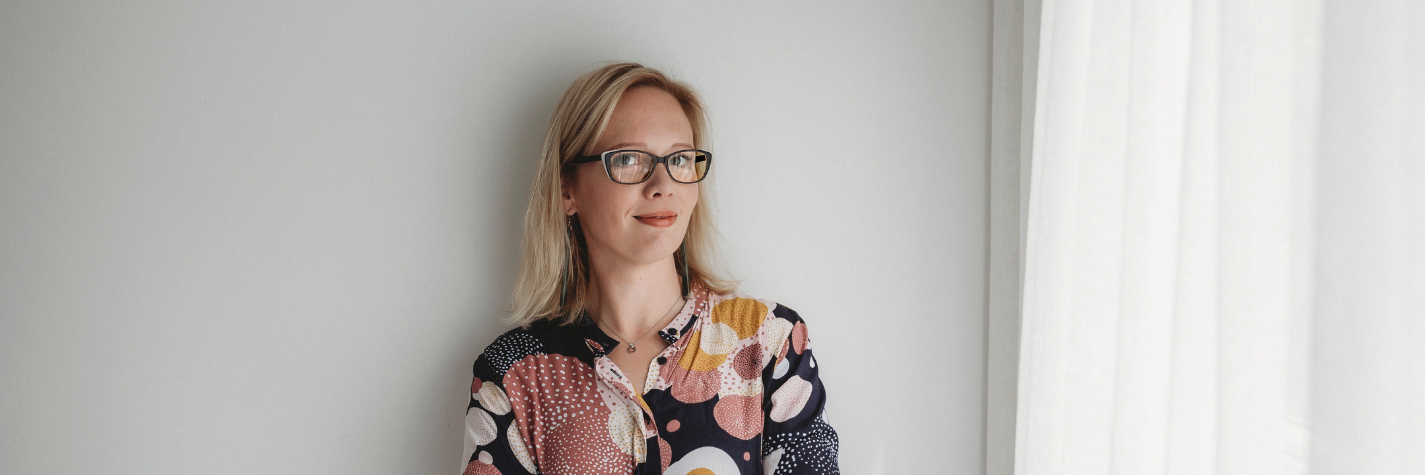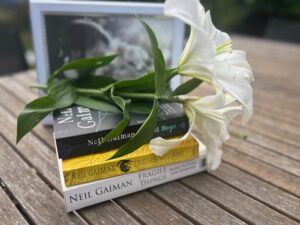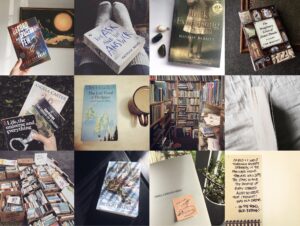Tell a writer to ‘write anything’ and they will stall. Anything is pretty big. When deciding what to talk about in this blog post, I asked myself what I would want to read. I teleported back to when I would scour the pages of blogs of Te Papa Tupu writers and wondered what I most wanted to find. I think what I wanted to read was a definitive guide to being selected as a finalist in this incredible programme.
I’m sorry, but I’m not going to do that. I mean, I’d love to share that wisdom but I don’t actually have it to share, so, instead, I’ll tell you about how I found myself standing at a table of mentees, authors, publishing experts and Māori literature advocates, and delivering my pepeha to them, drawing strength from my whakapapa, letting my tūpuna still my shaky voice. The path that got me to that moment wasn’t a traditional one, nor was it one that I would advocate anyone try to emulate – trust me, it ain’t pretty, but it’s mine. So here goes.
About ten years ago, soon after the birth of my second daughter, I decided to train as a high-school teacher. I had previously worked in corporate communications and while my first daughter was happy for Mama to pop around to various clients in Wellington and Auckland, my second daughter wasn’t having a bar of it. I had done some tutoring at the local polytech and really enjoyed it, so I jumped head-first into teaching English and Media Studies. Teaching fed my creativity in many ways; I enjoyed the ‘think-on-your-feet’ performance that standing in front of a room of teenagers requires and I loved the kids – they taught me far more than I could offer them. There was a lot I liked. But there was stuff I didn’t like, so after five years of teaching, I decided to step away from education. I had three goals: to revive my communications career, to study te reo Māori and to write more.
I managed to do all three. Working from home as a communications consultant meant I had the freedom to block chunks of my day (mainly from 5am) to write. We had builders adding an extension to our whare so my desk was in the lounge, surrounded by racks of clothes, boxes of lego and piles of books. But I wrote a lot. I built up a big bank of short stories, loads of poems and I even completed an online course to learn about writing junior fiction.
Somehow, I wrote my manuscript, Penny Pounamu and the Disappearing Tigers, while builders blasted drillsaws and The Rock from dawn to sundown. That was 2022. Later that year, an old school friend told me about a permanent role at her workplace that she thought I’d be great for. I ended up going for the role and getting it. I’d been warned that the consulting market would likely dry up when the election happened, so I decided to take the safer route and get back into a permanent gig.
Part of that new role included life insurance. I was stoked. Consulting was great but sick days were a fantasy and team bonding events were very lonely. The only clincher with the new life insurance was they wanted to figure out my low iron. I thought, sure, you’re just going to find out that I’m like half the women in the country who get light-headed when they stand up and fall asleep on the couch at 8.30 every night. I wasn’t a special case.
And, I mean, I had had these sore tummies for a few months, but I was also busy with a full agenda of work, writing, whānau and friends, so I swapped out breakfasts for coffee and panadol and soldiered on. I knew they wouldn’t find anything.
The insurance company booked me a colonoscopy. (This is the not fun part). It was a week after my forty-fifth birthday. At my birthday lunch, me and my girlfriends laughed about the ‘fun day out’ I had planned with my surgeon.
When I woke up after the procedure (it was painless, in case you were wondering) I started talking about conflicts of interest and key messaging, thinking I was in a work meeting. When I clicked that I was in hospital I remembered what was going on. The nurse said that they were calling my husband to come in. I wasn’t afraid, they’d said they would do this in case I was still so whacked out on anasthetic that I’d forget what the surgeon told me. “He’ll be walking the dogs,” I said. “Just tell me.”
The lovely Irish nurse gave me a sandwich and said they’d keep trying him and I was to relax. She had intensely blue eyes. She patted my hand and topped me up with anti-nausea when the sandwich didn’t settle well.
The next few hours and days are a blurred memory – just disjointed pebbles of conversations. A tumour. Probably cancer. Surgery. Urgent surgery. Possibly chemo. We don’t know. Scans. Hospital. Results. Biopsies.
Now let me fast-forward a week. Valentine’s Day 2023. Cyclone Gabrielle had emptied the streets as my husband and I drove across town to the surgeon’s office to get the results of the biopsy. I had told myself that it wasn’t cancer. The surgeon was wrong. I was fine. I felt fine. I wasn’t the ‘kind’ of person who got bowel cancer. I was too young, too healthy, too fit, too everything.
I karakia-ed across the carpark. Stepping in time with the words. “Whakataka te hau ki te uru, Whakataka te hau ki te Tonga, whakataka whakataka whakatakawhakataka.” Pebbles falling.
It was cancer. I had surgery a week later. Thankfully, there was just one tumour. Six centimetres of bad luck fighting to get outside of my bowel. It had succeeded in reaching some lymph nodes. Chemo.
I need to say, at this point, that I am lucky. My cancer was found early and removed. Bowel cancer chemotherapy is not the same cocktail as many other cancers. I was able to move to taking the pills instead of the IV after I had some adverse reactions to the IV drug. On the pills, my hair thinned, my hands and feet blistered, I was bone tired, but I knew I could manage it.
The hardest part of chemo, for me, was the fuzziness in my brain. A huge portion of my identity is built on my ability to write and speak – it’s my job as well as the basis of who I am. It’s how I operate. But I couldn’t write while I was doing chemo. I couldn’t knit the words together. I couldn’t make quick and damning jokes. I couldn’t jump confidently into an argument – my fourth form debating teacher wouldn’t have even recognised me.
But, during those months, when I lay on the couch all day, covered in blankets and dogs, I started feeling the success of the writing I’d done the year before – the ‘pre-cancer work.’ I got the news that my short story, Jonas was not a brave boy, had been selected for the Huia Short Stories 15 anthology. A few other anthologies arrived in the mailbox, with my words etched on the pages within them.
I knew that I couldn’t work on my manuscript for Te Papa Tupu until my head was clear again. Te Papa Tupu was my goal. As soon as I finished chemo, I went back to my story, dusting off Penny and Tane and breathing life into them again. I was ready. I think I submitted my story within two days of Te Papa Tupu opening for submissions.
The last eighteen months have taught me a lot, mainly that if you think you can do something, don’t wait, do it, and if you get knocked down, drop your shoulder and ram that door open again. What I know now is that I don’t want my words to fade away in notebooks in my cupboard, or hidden in computer folders. I want them on pages. I want to hold them and have my kids hold them. I want them kept safe in books.
I don’t want them to blow away like ashes.
For more information about bowel cancer go to: www.bowelcancernz.org.nz





